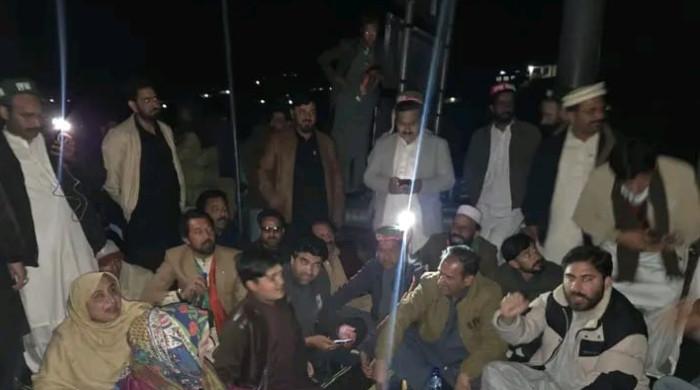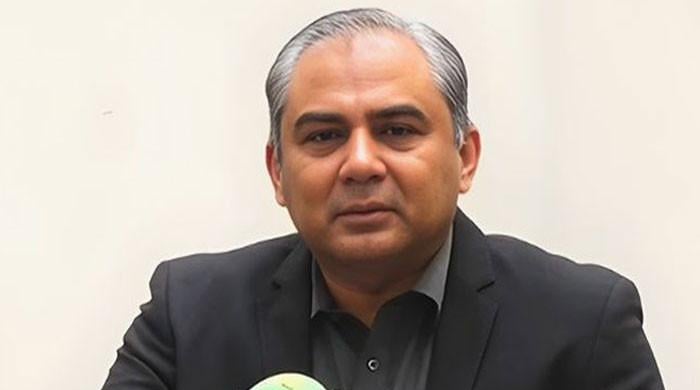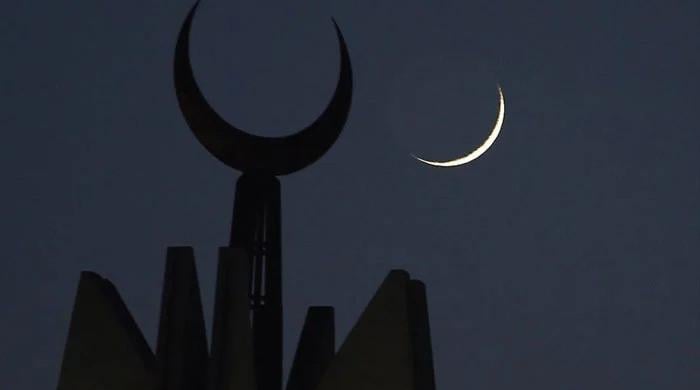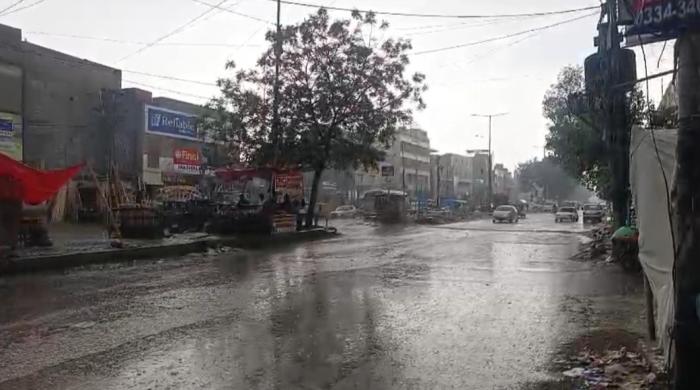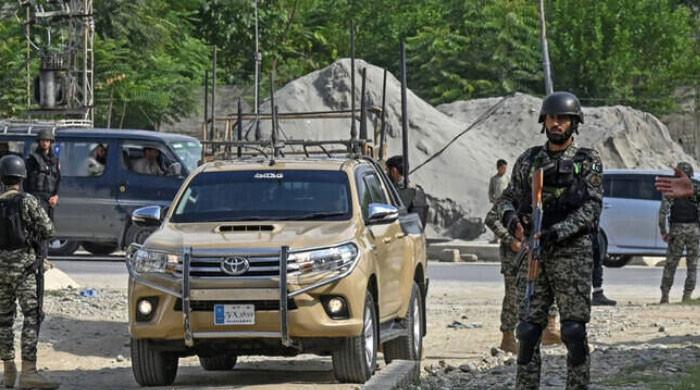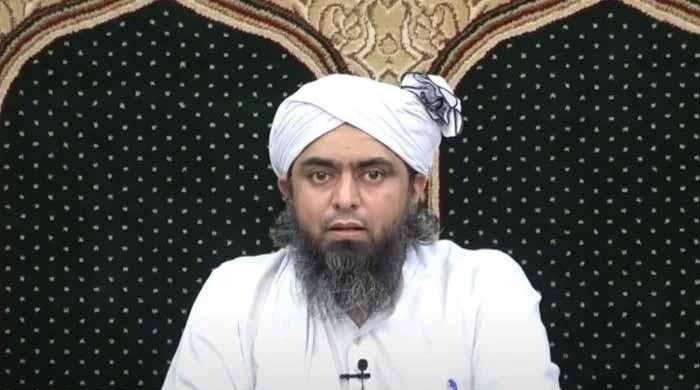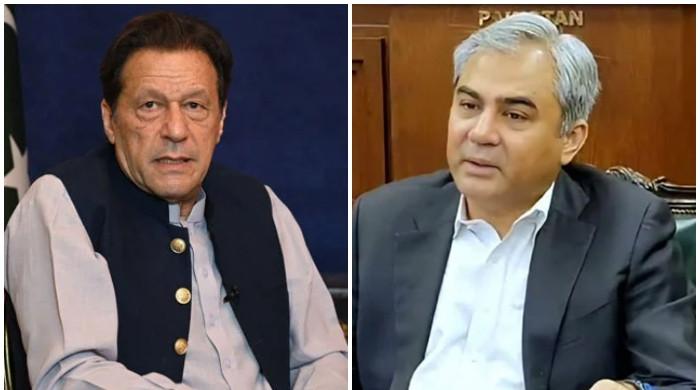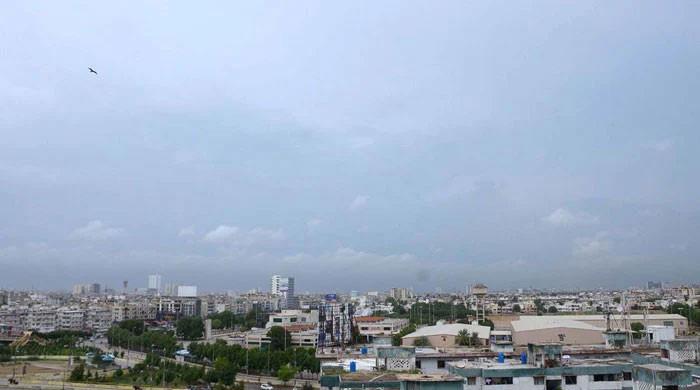Malala talks about education, extremism and politics with David Letterman
Nobel Peace Prize winner appears on David Letterman’s My Next Guest Needs No Introduction on Netflix
March 09, 2018
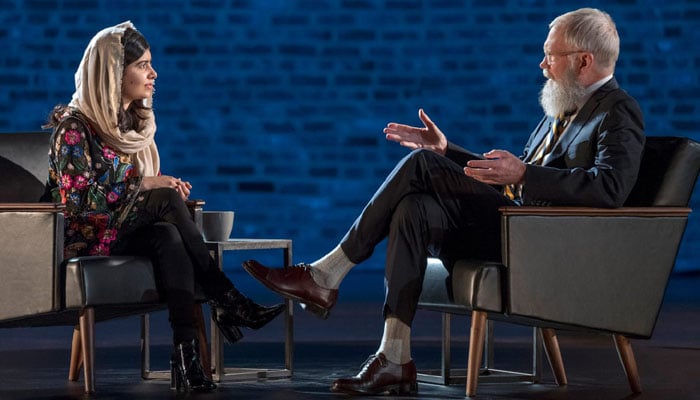
Malala Yousafzai appeared in David Letterman’s My Next Guest Needs No Introduction on Netflix.
The Nobel Peace Prize winner who received a standing ovation discussed gender equality, extremism and the importance of education with the late-night talk show legend.
“I don’t remember the incident,” the 20-year-old activist answered when asked about the Taliban's assassination attempt against her.
Malala said all she remembered was sitting with her friends in a school bus and then being shocked to having woken up in a hospital in a different country.
Responding to a question about what would have happened if she had not survived the assassination attempt, she answered, "I would hope that many people would have stood up and stood up against extremists, against not just the extremists, not just the people, but against the ideology."
"Because that's what we have to fight against: the ideology that exists there that does not accept women as equal to men [and] that does not accept women to have the right to education, that does not accept that women have the right to do a job, to decide our own future — we have to fight against this ideology whether it exists in the mountains of Pakistan, whether it exists in big cities like New York, Washington or anywhere,” the activist said while speaking to the late-night talk show legend.
From there, she expounded on how the cause of fighting for equal education for men and women is a global one that reaches even farther than Pakistan. "The governments need to invest more money into education. Business people, everyone who is part of society, they need to start thinking about investing in girls and their education. We just need an ambition and an intention. What to do is then easy."
Terming budget cuts in education as tragic, Malala added that it ‘bothers’ her that “leaders talk about eradicating extremism and ending poverty and then they ignore education.”
“That’s the first thing you need to do. You need to give education to the future generation,” she asserted.
When asked if she felt there was 'purpose' to the attack, Malala paused. "I think there might be but even if there isn't, you yourself can make a decision," she said. As a result of seeing death so "close," she said that she realised that her life had a purpose.
"And I decided that I’ll give this life to girls’ education , and speak out for them and give it purpose," she said to thundering applause from the audience.
The show which opened with the Nobel Prize winner giving Letterman and prospective students a personal tour of Oxford University which she is currently attending, keeps switching to clips of her life at the university.
In one of the clips, Letterman asked her why she wanted to be a tour guide to which she responded, “I am proud of my college and encourage students to apply." Malala began her undergraduate studies in philosophy, politics and economics (PPE) at Oxford University last October.
“I don’t really want them [prospective students] to ask me about personal things. Maybe one or two questions, that’s ok, but I do not want the tour to be focused on that,” she explained.
When asked by Letterman if she had aspirations to hold a political position, the 20-year-old replied, “No. to be honest people just assume that if you study PPE at Oxford then you are going to go into politics but that’s not true."
"There are some politicians who have studied this course such as David Cameron and Benazir Bhutto,” she added.
When asked about what she thinks about Benazir Bhutto, the first female prime minister of Pakistan, Malala said, “She’s an inspiration. She told women not just in Pakistan but around the world that they can be leaders.”
"I think definitely. Definitely, for sure," Malala responded when asked if there will be another woman leader of a Muslim country. "Very soon. I hope so," she added to that.
However, when Letterman asked her ideas for her future and if she had political ambitions, Malala laughed, "No."
After Oxford, she told him, "I want to continue my work for girls' education, that's what I have dedicated my life to, and I want to see more young girls getting a quality education, getting empowered, and becoming leaders of today and tomorrow."
Letterman also questioned Malala's father if she'll enter politics in a separate segment in the show. "To be honest, we just want Malala to exist in our life, he responded."
"We leave her dreams to her. As a father, I will support her if she wants to be a change-maker in any way," he added.
Yousafzai said he and wife get scared after the incident and for them the "first and foremost thing is her safety."
Responding to a question why Taliban theology is against women education, Malala said Taliban knew and recognised education can empower women. “They did not want that. They could not accept women as equal.”
But she said, her father and her continued to speak against them. “He objected to any discrimination that he saw in his life against women,” Malala said about her father.
"He was challenging all the stereotypes that were there and he was actually acting," she further said adding that had he not spoken up she wouldn't have either.
Speaking about her trips to Jordan and Lebanon, Malala said, "Most of the refuges have been there for four to five years and most of the children don’t have access to quality education."
Explaining that "often the education of refugees is not taken seriously because they [authorities] think they’re going to be for a while," the Nobel Prize Winner asserted, "They must have education especially for women.
"Investment in education is so important," she maintained.
"I was in Nigeria, was also in Kenya and I built a school in Lebanon and am working on a school in Pakistan," she further told Letterman.
"But my main goal is actually to empower local leaders because when you empower young girls you can bring change."
Speaking about her hometown, Swat, Malala said, "It is just like a paradise on Earth."
She said she "did not realise how beautiful Swat was" until she moved to the UK "and looked out the window and asked where the mountains were.”
Whether she'll go back to Swat, Malala said, "I haven’t been back to Swat since I was attacked. Unfortunately it’s been a very difficult time. I tried to to go but I didn’t find the right time. I have received a lot of support in my country. There is this lust for change. People want to see change in their country. I am already doing work there but I want my feet to touch that land.”
Questioned about Pashtun hospitality, Malala answered saying, "If you are in the Pashtun area, you don’t have to tell anyone you’re going to their house. If their door is open, you don’t even have to knock you just get in there.”
"We don’t usually lock our doors during the daytime," she further said, adding that you're served tea and dinner and not asked if you want it as "that is so offensive."
When Letterman inquired about guests staying over long periods of time, Malala said, "You can’t tell someone, that, oh like we need to go somewhere or you can’t tell them to just go. They stay for as long as they want to."
"You have to be comfortable with it," she responded to laughter from the audience when the late-night talk show legend asked if people are comfortable with guests staying for as long as they wished.
Malala also declared that she has forgiven her attackers. "The people who targetted me and tried to attack me, I forgive them because that’s the best revenge I can have."
Explaining that the person who actually attacked her was a young boy, "similar age as me", Malala said, "He thought he was doing the right thing and that he was targeting this person who was evil, and he was doing a good job."
Her comments came while speaking about honour killing. “But we are challenging that and people are standing up against that. And now what we say is that the best revenge is forgiveness, the 20-year-old upheld.
Shifting her focus to what she does in her free time, Malala said, "At Oxford there’s a lot to read and you get a lot of work and assignments so you have to keep that in mind whatever you do, whatever you plan to do."
Just like most other students, Malala said she attends talks and society meetings with her friends and then 'stresses' over her assignments which are due.
When initially asked about Trump, Malala initially responded, "Well I'm in the UK, so what do you think about him?"
But later, after Letterman voiced his opinion that Trump was unfit to represent anyone present in the auditorium, Malala chimed in. "Some of the things have really disappointed me, like sexual harassment and the ban on Muslims and racism. You see all these things and you feel that America, being known for human rights and liberty and freedom, that country should be leading on human rights," the activist said.
In a lighter moment in the episode, Letterman played a game with Malala, asking her to choose between two words and explain which she preferred. When asked, "Kanye or Jay-Z," she noted that she likes the "latest songs" but never looks to see who made it. However, she decided to go with Jay-Z.
When Letterman asked her whether she prefers the Yankees or the Mets, Malala revealed that she has joined Oxford's cricket club.
Malala thanked Lettermen for inviting her and giving her the "opportunity to highlight education."




